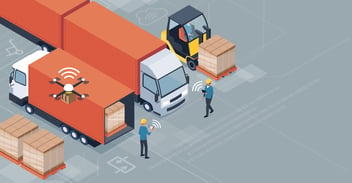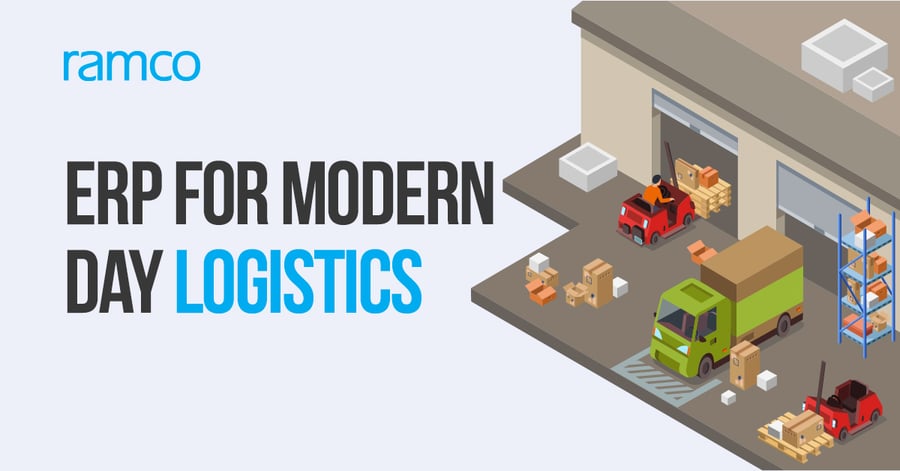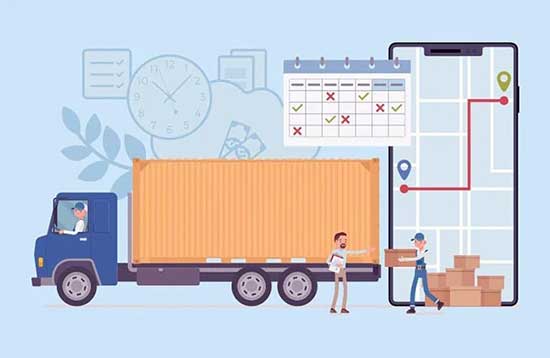
Evaluation of Logistics ERP Solutions – A Contemporary Look
Published :

It has been a couple of decades since the argument on whether the term Supply Chain Management should be called “Demand Chain Management” gained prominence. This very well highlights the fact that the chain is being driven by the market, indicating the shift in power from sellers to buyers. Similarly, there were justified calls to replace the term “Chain” with “Network” considering the involvement of multiple suppliers and customers in the entire system. These changes were well accepted following the rise of outsourcing and globalization, after which there was a widespread realization that this acceptance should be backed by co-operation and trust among the various parties to make the network effective and to deliver a collective value to the customer at the lowest cost to the network. Companies like Dell, Zara, Toyota, and Caterpillar took the lead followed by others, in creating this network of companies mutually and co-operatively working together to deliver superior cost and value advantages not only to the end customers but to themselves as well. Guess that in itself is a long premise for a blog.
Nevertheless, the point is back then, it required the organizations to eliminate the arm’s length approach they had with their suppliers, and form a trust-based network so that all the parties worked in sync and utilized shared data & information towards a common goal. One of the enablers which made this network effective was Information Technology which facilitated the sharing of information promptly with the required parties and often on a real-time basis. Having said that, it is understood that the onus remained on the companies to identify and form the network of companies and establish trust among them.
Fast forward to today’s world and the concept remains as contemporary as ever and will continue to do so. However, there is a change in approach. While the companies across industries continue to identify suppliers and partners for their network, they expect the IT systems too to complement them in this. That is, IT systems are expected to come with the add-ons and plug-ins which will either bring the suppliers to the network or the capabilities to connect with the suppliers from the word go.
It is no different in the world of Logistics too. For example; a Freight Forwarding application is evaluated for its capability or partnerships to connect with ocean liners or customs agent or government portals as much as for its operational capabilities of quote management, planning, tendering or documentation. Similarly, a Transportation Management System for a 3PL industry is expected to come with a database of lanes, rates, and suppliers whereas a Warehouse Management System is expected for its partnerships or integration capability with robotics, carriers, ASRS, etc. To stay ahead of this trend, Ramco Systems has embarked on a journey to equip its exclusive software solutions for Logistics industry with the partnerships and plug-ins necessary to enable a shared platform for the all parties in the ecosystem it operates in (Logistics Service Providers, Customers, Suppliers, Agents, Carriers, etc.). Some of them are as follows;
Companies should opt for ERP solutions that support the seamless integration of activities through the entire network supply chain. The key to a successful logistics strategy is that multiple management, including suppliers, customers, carriers, and agents through a single interface should be possible. Ramco offers a break in logistics silos by providing an integrated platform of all stakeholders in real time. This end-to-end integration improves operational efficiency and reduces delays, helping companies remain competitive in an environment where customer expectations and supply chain demands are constantly shifting. Whether it's managing inventory, tracking shipments, or coordinating deliveries, ERP solutions offer visibility and control, making it easier to optimize processes and maintain a lean, agile network.
In addition, ERP solutions provide the spine of logistics companies to scale efficiently, adapt to market changes, and drive innovation. Ramco's ERP services ensure logistics businesses are well-equipped for handling increased volumes and complexity through the integration of advanced functionalities such as real-time data analytics, customer relationship management (CRM), and seamless communication with vendors. This helps businesses identify new opportunities, reduce operating costs, and enhance customer satisfaction. With digital transformation taking center stage in the logistics sector, ERP solutions will become more essential in maintaining smooth operations, improving profitability, and ensuring businesses stay ahead in the fast-paced global market.
True to its claim of a single integrated system, Ramco Systems offers an end-to-end solution spanning operational and business applications to Logistics industry while also bringing along an ecosystem of solutions which will enable logistics companies to extend beyond their operations and compete as a network in the current world where competition is no longer between businesses but networks.

All Rights Reserved. © Copyright 2024. Ramco Systems.